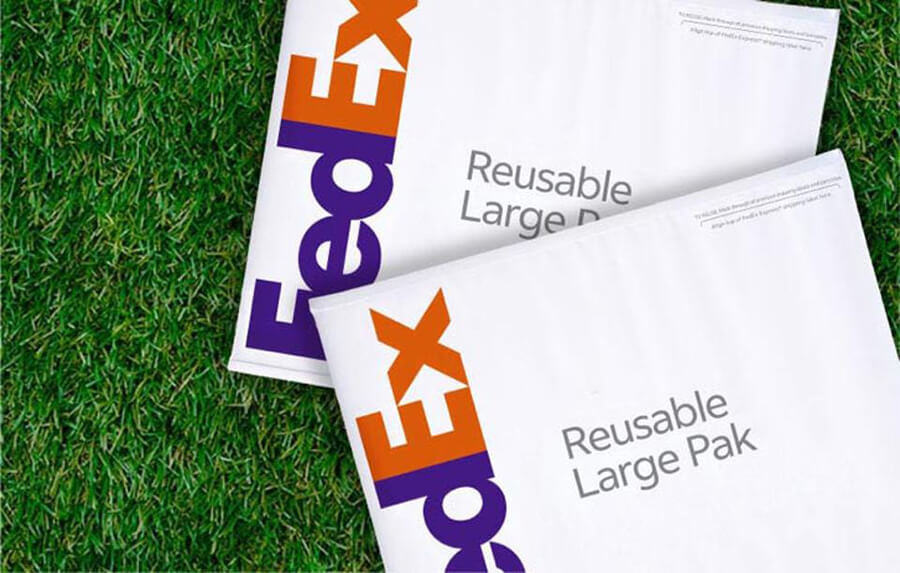SMEs Should Prioritize ESG Today For Future Success
As sustainability becomes a top priority for investors, customers and employees, it is increasingly important for SMEs to incorporate ESG strategies into their operations.
Sustainability is rated as an important purchase consideration for 60% of consumers globally. Research has also shown that 90% of consumers in Asia-Pacific are willing to pay a premium for sustainable products. And even more importantly, four out of five environmentally and socially conscious consumers in the region actively recommend products they like. More than half are super-promoters, recommending the product to more than ten people.
Data like this shows that following a clearly defined ESG strategy hits a double bottom line of building business while helping the planet and society as a whole. SMEs prioritizing ESG today are putting themselves in a better position to penetrate new markets, expand existing ones, and ensure their long-term success.
Implementing ESG initiatives can benefit firms regardless of their size or background, and the positive effects are not limited only to businesses dedicated to the circular economy. Companies with a robust ESG record tend to have a stronger corporate brand value, which attracts both employees and investors. Such companies also tend to perform better financially through a greater focus on innovation, operational efficiency and risk management. Conversely, firms that fail to act on ESG goals can potentially risk losing investor interest, as well as alienating customers and top-notch talent, especially among younger Gen Z groups.
Data like this shows that following a clearly defined ESG strategy hits a double bottom line of building business while helping the planet and society as a whole. SMEs prioritizing ESG today are putting themselves in a better position to penetrate new markets, expand existing ones, and ensure their long-term success.
Implementing ESG initiatives can benefit firms regardless of their size or background, and the positive effects are not limited only to businesses dedicated to the circular economy. Companies with a robust ESG record tend to have a stronger corporate brand value, which attracts both employees and investors. Such companies also tend to perform better financially through a greater focus on innovation, operational efficiency and risk management. Conversely, firms that fail to act on ESG goals can potentially risk losing investor interest, as well as alienating customers and top-notch talent, especially among younger Gen Z groups.

Creating a sustainable supply chain
It is not enough, however, for SMEs to focus solely on the sustainability of their own operations—they have to look at the entirety of their supply chains as well. For many companies, emissions generated across their operations account for only 20% of their overall climate impact, with the remaining 80% originating from production in the supply chain. Preferentially working with partners that prioritize sustainability themselves helps reduce that carbon footprint. The logistics industry can help here.
With our multipronged approach toward achieving carbon neutrality, we are working hard to make our own operations carbon neutral by 2040. The approach is also helping SMEs around the world build more sustainable supply chains today through a range of solutions in areas such as more environmentally friendly packaging solutions, and more efficient last-mile logistics.
It is not enough, however, for SMEs to focus solely on the sustainability of their own operations—they have to look at the entirety of their supply chains as well. For many companies, emissions generated across their operations account for only 20% of their overall climate impact, with the remaining 80% originating from production in the supply chain. Preferentially working with partners that prioritize sustainability themselves helps reduce that carbon footprint. The logistics industry can help here.
With our multipronged approach toward achieving carbon neutrality, we are working hard to make our own operations carbon neutral by 2040. The approach is also helping SMEs around the world build more sustainable supply chains today through a range of solutions in areas such as more environmentally friendly packaging solutions, and more efficient last-mile logistics.

We are transforming our entire parcel pickup and delivery fleet with electric vehicles. We already have a large EV fleet on the road in China and we started testing EVs in South Africa, India and Thailand last year, with more tests to follow. By 2030, all of our new vehicle purchases will be electric.
We are also investing in alternative fuels to reduce aircraft and vehicle emissions and modernizing our fleet for reduced fuel consumption. Meanwhile, our facilities around the world including in Johannesburg, the Philippines, South Korea, are moving towards a greater reliance on renewable energy. To date, some 26 solar facilities have generated more than 24.8 million kilowatt-hours of clean energy. The FedEx journey towards carbon-neutral operations may take some time, but we have already managed to reduce our emission intensity by 45% since 2009. Actions like these, and more still to follow, help reduce the carbon footprints of customers that use our services.
We are also investing in alternative fuels to reduce aircraft and vehicle emissions and modernizing our fleet for reduced fuel consumption. Meanwhile, our facilities around the world including in Johannesburg, the Philippines, South Korea, are moving towards a greater reliance on renewable energy. To date, some 26 solar facilities have generated more than 24.8 million kilowatt-hours of clean energy. The FedEx journey towards carbon-neutral operations may take some time, but we have already managed to reduce our emission intensity by 45% since 2009. Actions like these, and more still to follow, help reduce the carbon footprints of customers that use our services.

Enhancing reputation with ESG
While much of the discussion around ESG focuses on the environment, social and governance components should not be overlooked. There is mounting evidence to show that companies that advocate for diversity, equity and inclusion in the workplace perform better. A study by McKinsey revealed that the most diverse companies are now more likely than ever to outperform less diverse peers on profitability. Research has also found that not having an effective DEI strategy in place can hurt a brand’s reputation, and adversely impact its ability to attract top talent.
At FedEx, we believe that by emphasizing DEI and creating a positive work environment for team members, our staff will be able to offer better service to customers, which in turn helps grow the business. We have also been named as one of the best places to work across Asia in markets like Indonesia, Philippines and Thailand in 2022.
Ultimately, ESG will only become more important in the success of any business, including SMEs. Today’s business landscape is increasingly competitive and complex, and consumers’ expectations around ESG are getting higher. Companies that fail to meaningfully incorporate ESG into their operations and supply chains risk becoming irrelevant. The reverse is also true: SMEs that prioritize ESG now can look forward to a more successful future.
For more sustainability stories and ESG trends, visit our sustainability page here.
A version of this article first appeared in Forbes Asia on November 2, 2022.
While much of the discussion around ESG focuses on the environment, social and governance components should not be overlooked. There is mounting evidence to show that companies that advocate for diversity, equity and inclusion in the workplace perform better. A study by McKinsey revealed that the most diverse companies are now more likely than ever to outperform less diverse peers on profitability. Research has also found that not having an effective DEI strategy in place can hurt a brand’s reputation, and adversely impact its ability to attract top talent.
At FedEx, we believe that by emphasizing DEI and creating a positive work environment for team members, our staff will be able to offer better service to customers, which in turn helps grow the business. We have also been named as one of the best places to work across Asia in markets like Indonesia, Philippines and Thailand in 2022.
Ultimately, ESG will only become more important in the success of any business, including SMEs. Today’s business landscape is increasingly competitive and complex, and consumers’ expectations around ESG are getting higher. Companies that fail to meaningfully incorporate ESG into their operations and supply chains risk becoming irrelevant. The reverse is also true: SMEs that prioritize ESG now can look forward to a more successful future.
For more sustainability stories and ESG trends, visit our sustainability page here.
A version of this article first appeared in Forbes Asia on November 2, 2022.
***




















 The Latest
The Latest